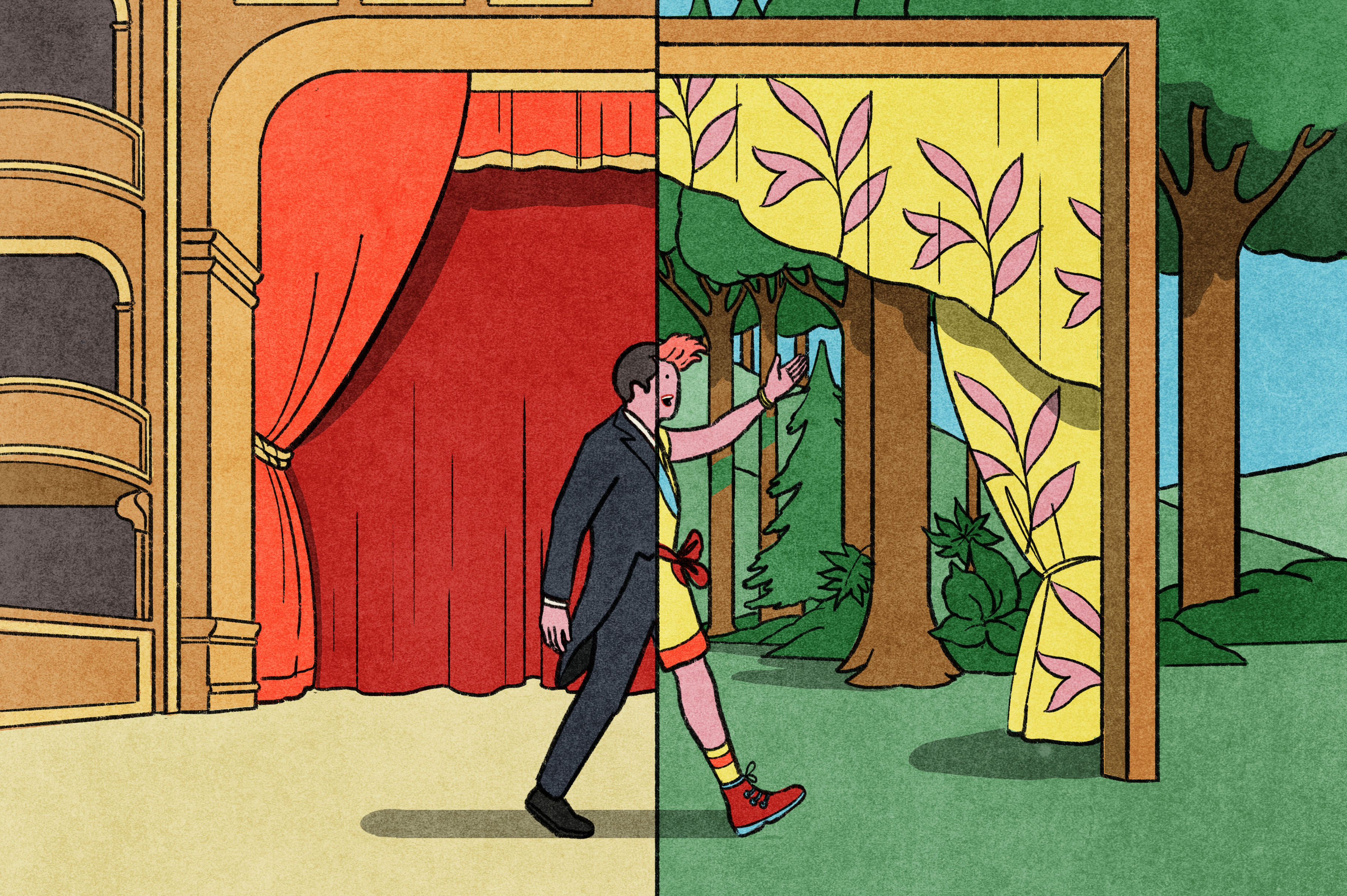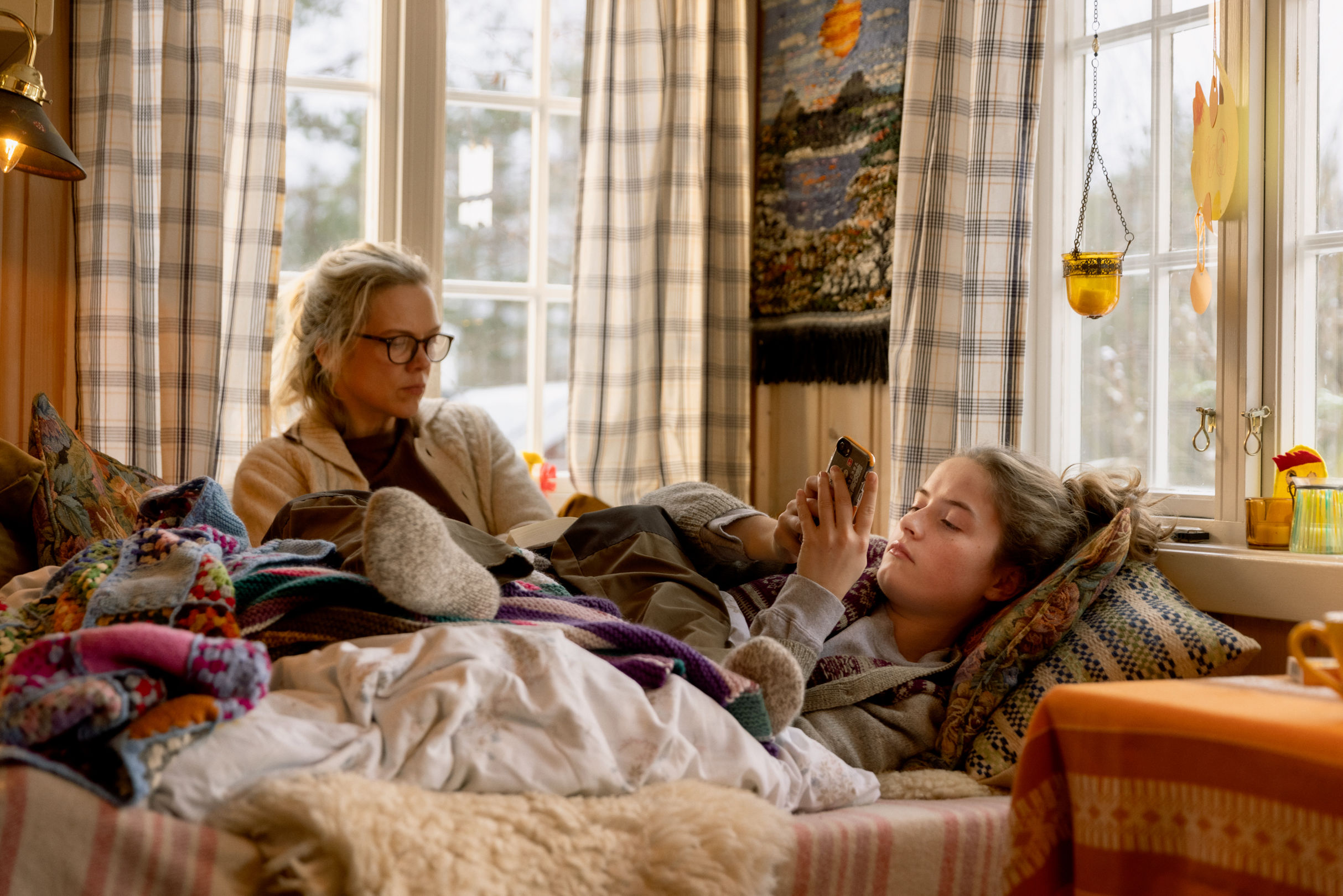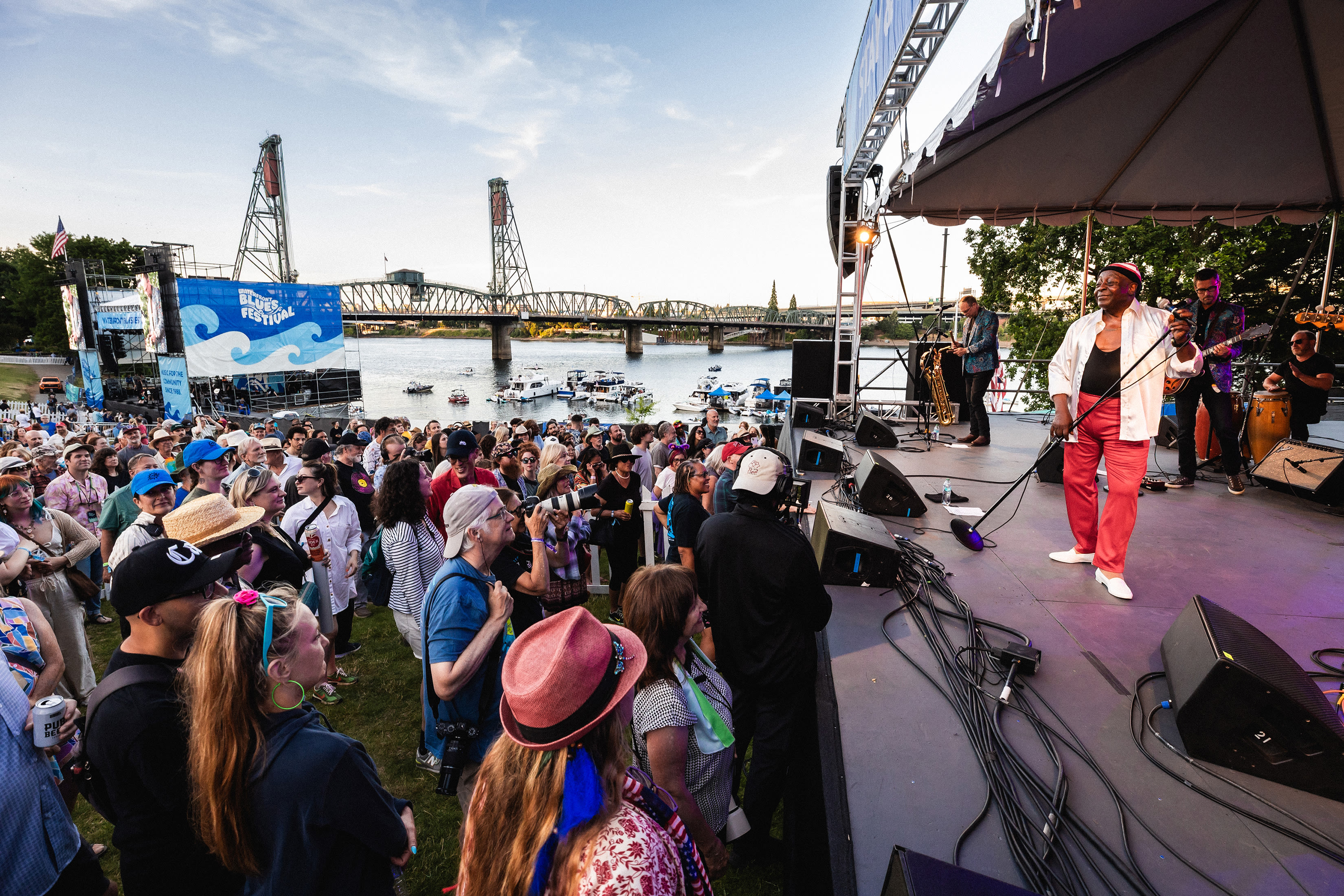Who’s the Portland Opera Singer with a Viral Video and a TV Invitation from Kelly Clarkson?
Portland State University graduate Madisen Hallberg is singing the national anthem on campus. A stranger approaches and asks if he can join in. The result, a spellbinding meeting of voices, was picked up by national media, tweeted by an Oregon senator, and has clocked up more than 100,000 views on social media. The stranger, Emmanuel Henried, who goes by Onry, is a Black opera singer born and raised in Portland.
“I am American. Period,” he says. “This is my national anthem, too.” As a singer with the Portland Opera, he lost some $20,000 of income when COVID-19 locked down the state. Unable to practice at home—“my opera voice is a little too loud to sing indoors,” he says—he started singing in the empty streets to maintain his voice. “It was therapeutic,” he says. Not everyone was on board, however. “One day, I was stopped by a security guard, and they said, 'You cannot sing in this space,'” he recalls. He was also asked to stop by a police officer. “I’m singing Italian opera and I’m thinking to myself, ‘I’ve spent $140,000 plus on training this voice and I’m told that I can’t sing outdoors.’”
Which is why when he saw someone else doing the same, he got excited. “I thought it would just be great to sing with someone instead of singing on my own.” Hallberg was game, they sang, and Onry left his number, saying if the video being recorded ever made it on to YouTube, he’d love to hear about it. It wasn’t until a month later, when PSU called him to thank him for his contribution, that Onry found out he had inadvertently joined in the PSU Commencement ceremony. “I bombed that girl’s recording!” he says. “That’s just the worst.”
He was also captured on video last month singing at a Black Lives Matter protest in Portland, leading a crowd in the Ben E. King classic “Stand by Me.” He says that moment came courtesy of an apparent no-show from Trail Blazer Damian Lillard, who had joined protesters and whom the crowd had been expecting to hear from that day. “For some reason, he decided not to speak,” recalls Onry, who was called up in his stead. “That’s when I sang in front of thousands of people on the waterfront, televised—this moment of a lot of people waiting to hear Damian Lillard and all of a sudden I get up.”
The protests had been meaningful for Onry. “I said, OK, we’re marching in the names of people who look like me. If I’m going to survive in this country, I have to use my voice.”
As a Black child with an ambition to sing opera, Onry was told from an early age that his dreams were misplaced. “At school my teacher told me that Black people don’t sing classical music or opera, because of the texture of the voice,” he recalls. “She tried to explain to me scientifically why—the color of the voice is connected to the color of sound, we just have a darker sound.”
But Onry watched YouTubes of Kathleen Battle, Jessye Norman, and Leontyne Price, and knew it was possible. He became one of the youngest members of the Portland Opera in 2014—at his first rehearsal, on hearing Onry spoke Russian, had a French last name, and was there to sing, he says the artistic director asked him if he was part of the witness protection program. “I realized at that moment, it would be easier for her to believe that I was part of the witness protection program than to be a young African American male in this city who loves the same form of art, the same form of music that she did,” he says.
Onry says he realized he was going to have to prove himself, and he’s been doing it ever since. At the opera, in his classical training, and also separately as a soul singer. “Most classical professionals say if you’re going to sing classical, you can’t sing any other genre,” says Onry. “I thought, I can’t strip myself of Blackness, and music being innately part of my being, so I’ll have to hide it and work on it in my own spare time, and I’ll have to develop this other genre of music that is also something that I love. I’ve had to keep both very separate.”
Now they come together in a forthcoming documentary and EP, Livin’ in the Light, which Onry is directing, raising funds for its completion through GoFundMe. He says it documents the impact of COVID-19 on Black creatives. “This work is an attempt to witness and index the joy, perseverance, and struggle of being a Black male artist in what is often called the whitest city in America while honoring the timeless art form that is opera,” he says on the website.
As for the music? “It’s this combination of really, really great artists full of orchestrated sounds, and it shares that music does not have to be segregated, doesn’t have to be this or that, it can be a combination of it all and can come from one voice, and one instrument.”
Onry, who’s been fielding calls from Kelly Clarkson, Steve Harvey, and international media since that viral video, says the EP and movie’s title song, “Livin’ in the Light,” will be aired by the BBC some time next week, reaching an audience with his voice far beyond his hometown. And all of this because he sang with a stranger on the street.
“I’ve definitely been going through a process of soul searching about my own Blackness and who I am in America,” says Onry, recalling that moment. “When I sing, although there may not necessarily be tears coming from my face, I, too, am crying in that song. This experience, my Blackness, my opera-ness, all the layers of who I am exist in the layers of my voice.”
You can find Onry's GoFundMe here, and follow his progress on Twitter here.




